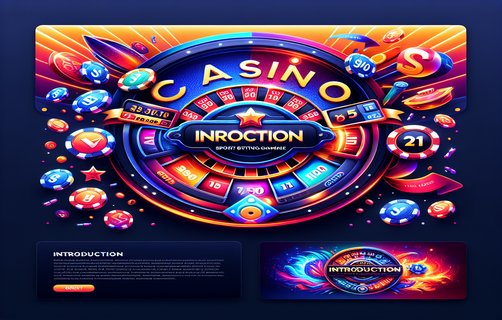Unpacking the Evolution of Online Gambling: Challenges and Innovations
The landscape of online gambling continues to evolve rapidly, characterized by both opportunities and challenges. As the industry grows, various issues come to light, such as bonus abuse, user experience, handicap betting, hand reading, player anonymity, mobile live dealer functionalities, and the critical aspect of self-exclusion. Recently, a significant jackpot result has catalyzed a deeper examination of these themes.
Bonus Abuse remains a recurring issue within online gambling platforms. Players often seek to exploit promotional offers by entering multiple accounts or using fake identities to access bonuses unfairly. This behavior not only impacts the financial viability of gaming companies but also tarnishes the experience for genuine players. Effective measures, such as enhanced verification processes and stricter terms of service, are crucial for curbing this abuse and ensuring a fair playing field.
User experience plays a pivotal role in retaining customers in the competitive online gambling market. Websites and applications must be designed with intuitive navigation, fast loading times, and robust customer support mechanisms. A poor user experience can lead to frustration, resulting in decreased player engagement and potential losses in revenue for gambling operators. Increasingly, companies are investing in user interface design and are seeking feedback from players to tailor their platforms more effectively.
Handicap betting has emerged as a popular method that adds an element of strategy to the betting process. By leveling the playing field between competitors, handicap betting allows gamblers to engage with sports outcomes more thoughtfully. However, this also poses a challenge as it requires players to have a solid understanding of the sports event mechanics and the teams involved. Online platforms need to provide educational resources to aid novice bettors in grasping these concepts, ensuring a more equitable betting environment.
Another challenging aspect is hand reading, which is particularly prominent in poker games. Skilled players can gain a significant advantage by reading opponents’ behaviors and betting patterns. This skill requires extensive experience and a keen understanding of psychology, which can intimidate newer players. To counter this, online poker rooms are considering live streaming coaching sessions and tutorials to democratize knowledge and enhance player skills across the board.

Player anonymity remains a double-edged sword in the realm of online gambling. While anonymity provides a safe space for users who may wish to keep their gambling activities private, it can also lead to abuse of gaming platforms. Companies are grappling with finding the right balance between respecting user privacy and ensuring responsible gambling practices are upheld. Providing robust self-exclusion features becomes critical in this context, empowering players to set their limits without feeling scrutinized.

The rise of Mobile Live Dealer games has revolutionized the online casino experience, merging the convenience of mobile gaming with the authenticity of a brick-and-mortar establishment. Players can now interact with live dealers and other gamblers in real-time, enhancing the excitement of the game. However, operators must ensure the technology is seamless and secure, as any technical glitches during live sessions can diminish the player’s experience.
Finally, the principle of self-exclusion is crucial in promoting responsible gambling. This process allows individuals to voluntarily restrict themselves from accessing gambling services, helping to combat addiction. Online platforms are increasingly implementing user-friendly options for self-exclusion, where players can set time limits or completely halt their access. The prevalence of tools aimed at responsible gambling underscores the industry's commitment to fostering a safe environment for all users.
In conclusion, the online gambling sector is at a crossroads, faced with both exciting opportunities and significant challenges. As the industry gears up to meet these headwinds, it becomes essential for stakeholders to prioritize ethical practices, enhance user engagement, and cultivate a responsible gambling culture. As jackpot results grow and opportunities abound, the focus should remain on creating a balanced and equitable gaming environment for all players.
